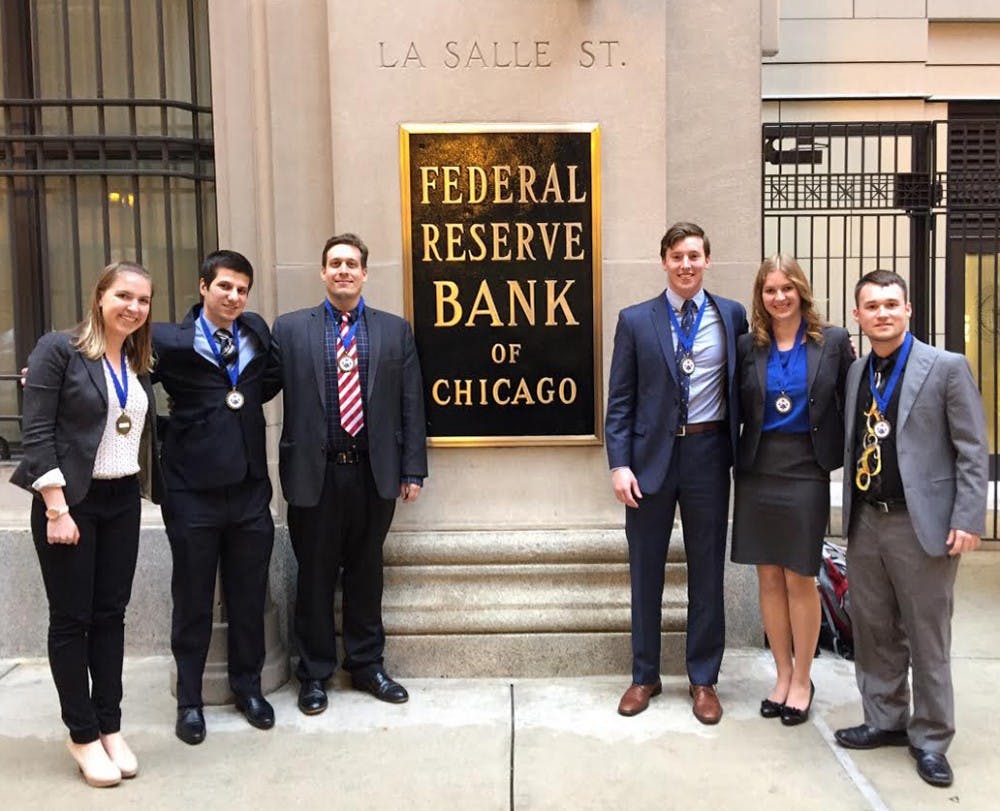Ball State’s Fed Challenge Team made fourth place in the district final of the Fed Challenge competition Nov. 9 for the third time in school history.
Five economic students from Ball State competed against 16 other schools in the district final. They gave a 15-minute presentation about macroeconomic and monetary policy. The teams in the competition suggest ideas the Federal Reserve could do to improve their system, and answer questions from judges about the economy.
Senior Tyler Harris, an economics major, is a returning student who was a part of the last year’s Fed Challenge Team. Even with four new members this year, he said the team was more prepared than in 2014.
“Last year everything was new, everyone didn’t know what was going on,” Harris said. “This year we kind of had an idea on how the first round would be like. Coming on to the final round, everything was different.”
Michael Redchanskiy, a senior economics major, said Ball State made it to the final round to compete with Northwestern, University of Chicago and Marquette.
Judges asked students about the current events, such as the ISIS terrorist attack on Paris, and compared them to the monetary policy and ways to improve on them.
“First we felt awesome, we were like ‘…we totally made it! We’re getting a gold medal!’ and then we go to the final round with the judges and they made us feel like we suck... [However,] we were prepared for them this year,” Harris said.
The questions weren't easy, but Harris said the team knew how to answer them with the knowledge they learned in class and after school. Telling the judges what they knew about the questions, even if it seemed challenging, showed what knowledge they had, from traditional monetary policy to modern day monetary policy.
Nicholas Curott, a coach and assistant economics professor, said the Fed Challenge helps students apply their knowledge and be creative.
“We work together, … they’re not passively receiving ideas [in a classroom], they are actually learning how to come up with their own ideas,” Curott said.
Curott put a lot of time and preparation with the students, tutoring them and meeting them late at night at the library to go over materials for the competition.
Participating in the challenge helped Redchanskiy understand his field of study better, he said.
“It’s help me become a better economist,” Redchanskiy said. “I’ve learned a lot about macro-economics, monetary policy, I’ve learned a lot about the Federal Reserve, and some of the policy that they try to pursue for the economy.”





